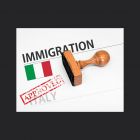European elections do count.
This weekends elections for the European parliament will be fought over many issues, but none of them are directly relevant to the mandates Europeans will be granting their 786 new members of parliament (MEPs).
For many, the elections seem quite irrelevant; in Britain five years ago voter turnout (24 per cent) was lower than participation in a current reality television show. Here in Italy, voters have always exercised their political rights more enthusiastically but even so, at 70.6 per cent, turnout was still lower than in either the national or regional elections. For the record, the highest turnout in 1999 (91 per cent) was in Belgium, where voting is compulsory. The average in 1999 for the 15 member countries was 49.8 per cent.
The reason for the democratic deficit of participation is that even after 25 years of direct elections, the parliament still has very blunt teeth. But for all the MEPs lack of real power, the elections are far from irrelevant.
In Italy there are 87 MEPs from five constituencies, all elected with a system of proportional representation, going from nine members (in the islands) to 20 (in the north-west).
Unlike most of the other 24 European Union members, Italy goes in for celebrity candidates in a big way. Lilli Gruber, the former RAI anchorwoman of public televisions main evening news programme, heads the Uniti nellUlivo centre-left list in Rome. Another ex-RAI journalist, Michele Santoro is standing in the north-west. Santoro was one of the three RAI people publicly criticised by prime minister Silvio Berlusconi who then found their contracts terminated, so it is not surprising to see him supporting the opposition. Gruber too made her politics clear when she resigned from RAI in April, accusing the public broadcaster of limiting free expression.
Berlusconis Forza Italia party has the journalist Jas Gawronski on its list, but he has had almost a decade in the Italian and European parliaments. Much further from politics are the American-born model Clarissa Burt (Alleanza Nazionale), the popular singer Marcella Bella and a variety of footballers and athletes.
Equally improbable candidates are the established politicians who stand in the hope that their names will draw the vote but knowing full well that they will either withdraw as soon as they have been elected or keep the title but never turn up in parliament. So the ever-present Berlusconi is top of the Forza Italia list in all five constituencies, as is Gianfranco Fini, deputy prme minister and leader of AN. Finis party has also put up most of its ministers as candidates Gianni Alemanno, Maurizio Gasparri, Adolfo Urso and Mirko Tremaglia none of whom is likely to give up a job in Rome for a seat in Strasbourg.
Then there is the leader of the Lega Nord, Umberto Bossi, who suffered a serious stroke two months ago but nonetheless heads his partys candidates across the country.
On the other side, Romano Prodi is present on all the Uniti nell Ulivo posters but he is not a candidate and, at least in theory, is not taking part in the campaign as he is still president of the European commission until the autumn.
All the parties of the centre-right coalition have their separate lists, with the sniping that is going on in the government carried over into the campaign in a fairly discrete way. Finis main poster proclaims that he has a single interest the Italians, with the obvious conclusion that unlike his coalition ally and boss, Berlusconi, he has no conflict of interests. Alessandra Mussolini is standing for her own list on the far right since she left AN because of Finis criticism of her grandfather.
Despite their many and well-trumpeted divisions, the centre-left has put forward a trial run for the regional elections next year and the national ones in 2006. Uniti nellUlivo, nicknamed the quadricycle for its four very unequal components, (Democratici di Sinistra (DS), Margherita, Socialisti Democratici Italiani (SDI), and the Repubblicani Europei) is in practice the DS and the Margherita trying a re-run of their 1996 victory. Recent opinion polls have given them up to a third of the vote.
There is still a choice on the left, though. That hardy perennial Fausto Bertinottis Partito Rifondazione Comunista (PRC) has been taking up to six per cent in the polls, while the new formation of ex-prosecutor Antonio Di Pietro and Achille Occhetto, founder of the Partito Democratico di Sinistra (PDS), aims to mobilise the unmotivated left-wing voter, fed up with the bickering and compromises of the established parties. In Rome, the Ulivo senator Tana de Zulueta is standing for the new list.
The real European issues the constitution, the economy, the consequences of the recent and future enlargement are in practice not debated. But in Italy national issues have been discussed as hotly as if this were a national election. Iraq is top of the list and there has even been the suggestion (and hope on the centre-left) that if Forza Italia really does collapse, as the opinion polls suggest, then Berlusconi should resign. He has repeatedly discounted the idea, but if he does crash, then at the very least, the balance of power in his own coalition will be very different.
And that means that the elections do indeed count.
European parliamentary elections will be held from 10 to 13 June across the European Union; in Italy the polling is on 12 and 13 June. Also on those days in Italy there will be regional elections in Sardinia, and local elections for 4,519 city councils and 63 provinces, for a total of over 35 million voters.
European citizens resident in Italy may vote in European parliamentary elections. Go to http://cedweb.mininterno.it:8886/europee/





















